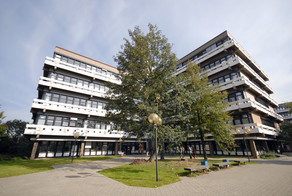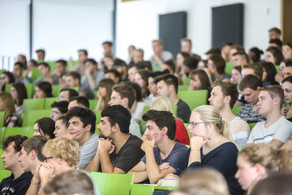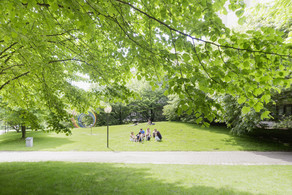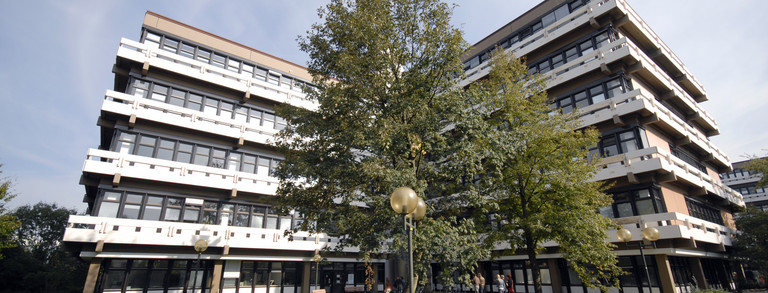Ann-Kathrin Torka
Forschungsschwerpunkte
- Motivation in Teams
- Open Science
Sprechzeiten
nach Vereinbarung
Weitere Informationen
Together, everyone achieves more—Or, less? An interdisciplinary meta-analysis on effort gains and losses in teams.
With our meta-analysis, we integrated the two research strands on effort gains and effort losses in teams and developed the Team member Effort Expenditure Model (TEEM) to explain when working in a team is a motivating or demotivating experience. We found that teamwork is neither motivating nor demotivating per se. In fact, the way in which teamwork is designed determines whether people show more or less effort during teamwork as compared to individual work. For more effort during teamwork to emerge, people need to have an indispensable contribution to the team performance or need to be able to compare themselves with moderately stronger teammates. Furthermore, we found a difference between objectively and subjectively measured effort: individuals reported when they spent more effort during teamwork, but not when they spent less effort during teamwork. We also found effort losses to be greater in the laboratory than in the field, but we did not find this difference for effort gains.
Many Labs 5: Testing pre-data-collection peer review as an intervention to increase replicability.
Critics said that the 2015 Reproducibility Project: Psychology failed to replicate findings because of deficiencies in power and adherence to expert feedback. To address this issue, we selected 10 studies from the 2015 replication project that had been criticized by the original authors and replicated them in two ways. First, we used the original designs with an increased sample size. Second, we used research designs that had previously undergone an expert peer review process. Results revealed that these attempts could not increase replicability of the original findings. Overall, the replicated studies yielded an average effect size that was very similar to that of the 2015 replication project and significantly smaller (78%, on average) from that of the original studies. The findings are evidence against the hypothesis that the earlier failures to replicate were due to failures of the protocols. Thus, our results suggests that the original studies may have exaggerated the existence or size of the findings.
Many Labs 5: Registered replication of Vohs and Schooler (2008), Experiment 1
Vohs and Schooler (2008) found that convincing people that free will is an illusion reduces their sense of personal responsibility. In their study, participants cheated more on a task after reading arguments against free will. However, Embley, Johnson, and Giner-Sorolla (2015) did not replicate this finding. As part of Many Labs 5, we investigated whether difficult arguments against free will and a poor measure of free-will beliefs account for the failure to replicate the results. We used two different protocols to replicate the findings. The first was a close replication of Vohs and Schooler’s Experiment. The second was a revised protocol with an easier to understand manipulation and an improved measure of free will. We found that the revisions did not matter. Free-will beliefs were unchanged by the manipulations, there were no differences in cheating behavior between conditions, and participants who expressed a lower belief in free will were not more likely to cheat in our task.
seit 10/2018
Wissenschaftliche Mitarbeiterin
Lehrstuhl für Sozial-, Arbeits- und Organisationspsychologie (Prof. Dr. Joachim Hüffmeier)
Technische Universität Dortmund
2018
Forschungspraktikum
Lehrstuhl für Sozial-, Arbeits- und Organisationspsychologie
Technische Universität Dortmund
2018
Studentische Hilfskraft
Institut für Schulentwicklungsforschung
Technische Universität Dortmund
2016-2018
Studentische Hilfskraft
Lehrstuhl für Sozial-, Arbeits- und Organisationspsychologie
Technische Universität Dortmund
2016-2018
M. A. Erziehungswissenschaft
Schwerpunkt: Empirische Bildungsforschung
Technische Universität Dortmund
2013-2016
B. A. Erziehungswissenschaft
Schwerpunkt: Psychologie
Technische Universität Dortmund
- Motivation in Teams
- Open Science
Zeitschriftenartikel (peer-reviewed)
- Keener, S. K.*, Kepes, S.* & Torka, A.-K.* (in press) The trustworthiness of the cumulative knowledge in iIndustrial/organizational psychology: The current state of affairs and a path forward. Acta Psychologica
- Torka, A.-K., Mazei, J., Bosco, F., Cortina, J., Götz, M., Kepes, S., O’Boyle, E., & Hüffmeier, J. (in press). How well are open science practices implemented in industrial and organizational psychology and management? European Journal of Work and Organizational Psychology. doi.org/10.1080/1359432X.2023.2206571
- Torka, A.-K., Mazei, J., & Hüffmeier, J. (in press). Are replications mainstream now? A comparison between support for replications expressed in the policies of social psychology journals in 2015 and 2022. Social Psychology Bulletin.
- Hüffmeier, J., Torka, A.-K., Jäckel, E., Schäpers, P. (2022) Open Science Practices in IWO Psychology: Urban Legends, Misconceptions, and a False Dichotomy. Industrial and Organizational Psychology: Perspectives on Science and Practice, 15(4), 520–524. https://doi.org/10.1017/iop.2022.69
- Mazei, J., Mertes, M., Torka, A.-K., & Hüffmeier, J. (2022) Why We Sometimes Need Different Measures. Personality Science, 3, 57-60.
- Hüffmeier, J., Hertel, G., Torka, A.-K., Nohe, C., & Krumm, S. (2021) In Field Settings Group Members (Often) Show Effort Gains Instead of Social Loafing. European Review of Social Psychology. Advance online publication. doi.org/10.1080/10463283.2021.1959125
- Torka, A.-K., Mazei, J., Hüffmeier, J. (2021). Together, everyone achieves more—Or, less? An interdisciplinary meta-analysis on effort gains and losses in teams. Psychological Bulletin, 147(5), 504–534. doi.org/10.1037/bul0000251
- Buttrick, N., Aczel, B., Aeschbach, L., Bakos, B., Brühlmann, F., Claypool, H., Hasselman, F., Hüffmeier, J., Kovacs, M., Schuepfer, K., Szecsi, P., Szuts, A., Szoke, O., Thomae, M., Torka, A.-K., Walker, R., Wood, M. (2020). Many Labs 5: Registered Replication of Vohs and Schooler (2008), Experiment 1., Advances in Methods and Practices in Psychological Science, 3, 429–438. doi:10.1177/2515245920917931
- Ebersole, C.R. […] Torka, A.-K. […] Nosek, B.A. (2020). Many Labs 5: Testing Pre-Data-Collection Peer Review as an Intervention to Increase Replicability. Advances in Methods and Practices in Psychological Science, 3, 309–331. doi:10.1177/2515245920958687
* The asterisk denotes a shared first authorship.
Onlinepublikationen
- Hüffmeier, J. & Torka, A.-K. (2022). Leidet die Motivation bei der Arbeit im Team? Forschung & Lehre. Can be retrieved from https://www.forschung-und-lehre.de/karriere/leidet-die-motivation-bei-der-arbeit-im-team-4659
- Torka, A.-K., Mazei, J., & Hüffmeier, J. (2022). Why some teams boost motivation while others totally sap it. Psyche. Can be retrieved from https://psyche.co/ideas/why-some-teams-boost-motivation-while-others-totally-sap-it
2019
Travel Grant: Konstanz International School on Motivation Science in Konstanz, Germany
Universitätsgesellschaft Konstanz e.V. (UGK)
2019
Travel Grant: Research Synthesis 2019 in Dubrovnik, Croatia
Leibniz‑Institut für Psychologie (ZPID)






